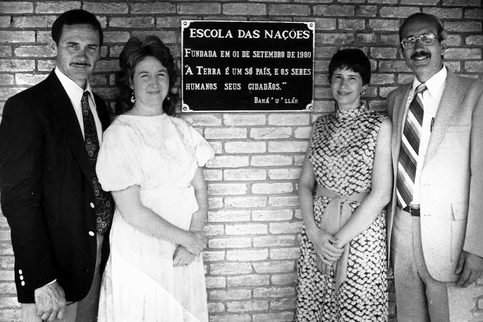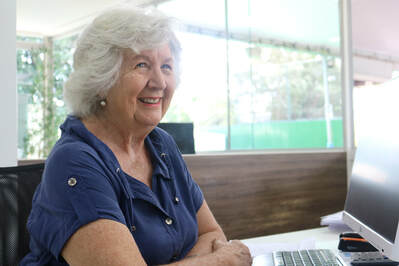 Mr. Jaques and Mrs Sue Frasunkiewicz (left) and Mr. Jim and Mrs. Jeannine Sacco (right) Mr. Jaques and Mrs Sue Frasunkiewicz (left) and Mr. Jim and Mrs. Jeannine Sacco (right) Bilingual education is becoming more and more important with each passing decade of life on this planet. We are just beginning to discover how vital it is that the nations of the earth are able to communicate one to another. Language is the essence of communication. Just as it is indispensable for each human being to learn the language of his or her country in order to live cooperatively in that space, it is being perhaps just as important to learn a language in which all the peoples of every country can also live and share ideas with each other. Therefore each citizen should ideally learn his mother tongue as well as an international language which will make for a free-flow of ideas around the world. Will English become that international language? Of course, we don't know. Perhaps in the future another language will be chosen, although English is certainly at present the closest language we have to an international one. Therefore, how should we teach this second language in our schools? When I was growing up in the United States it was commonly thought that language learning should only begin in secondary school when a student was fourteen at least, perhaps older. However, in the last few decades, it has through research and observation, begun to be understood that language learning is best done by very young children. They have been given brain sponges for language (and other skills as well). They are little language geniuses, all around us! They not only have no trouble learning their native languages without accent, but can also easily learn a second language (or a third, fourth, fifth). As each language has its own space in the brain, there is certainly room for another without taking any space from the first. Research shows that this window closes at about ten years of age. After that time, it will be virtually impossible to learn another language with fluency and without an accent. My husband and I along with another couple came up with the idea to start such a school, which is now the School of the Nations in Brasilia. We began with five-year olds and gave a Portuguese program for half-day and then an English one for the other half-day. We found our experiment to be the first of its kind in Brazil in 1980 and successful as well. Our first children now have children of their own and for the most part are carrying the tradition onwards of bilingual education for them too. Then in the mid-1990s we began seeing new and exciting brain studies that saw the child as capable of learning another language as well as the mother tongue as early as two-years old. That's when we began Affinity Arts which enrolls children in our system at that early age. We have since had 23 years of experience and have daily been discovering the enormous potential that small children have just as naturally as breathing. At first, MEC was skeptical of our educational system. This was certainly understandable as few educators in the world had ever tried such an audacious idea of a school, although schools in Europe had long since realized that European children had a necessity of learning other languages due to each country bordering close on the other. But pre-schoolers? We put two teachers along with an assistant in each classroom. One teacher spoke Portuguese, and the other only English in the classroom. At first the Portuguese-speaking children gravitated towards the teacher who used Portuguese, and the foreign children towards the English teacher. But gradually, the children would also become fond of the other teacher and seek to speak to her as well. The second language grew from love. We were careful only to put teachers in the classroom whose language was perfect in every way because children of that age have wonderful ears and memories for sound. In such a manner, the children who are marvelous at imitation, were easily speaking a second language in several years. Now we have a very cordial relationship with our friends at MEC! We believe at Affinity this system will most likely become worldwide someday and accepted in all countries. It will be a powerful tool in the search for world peace, and we are privileged to have been given the chance to demonstrate to all that it is a tremendous and important principle for the children of whatever race, nationality, or culture to have as their own the heritage of an international second language from early childhood on for enrichment of their own lives and those of their fellow citizens. By: Mrs. Sue Frasunkiewicz
0 Comments
Your comment will be posted after it is approved.
Leave a Reply. |
Histórico / Historic
November 2019
Categorias/ Categories |



 RSS Feed
RSS Feed




